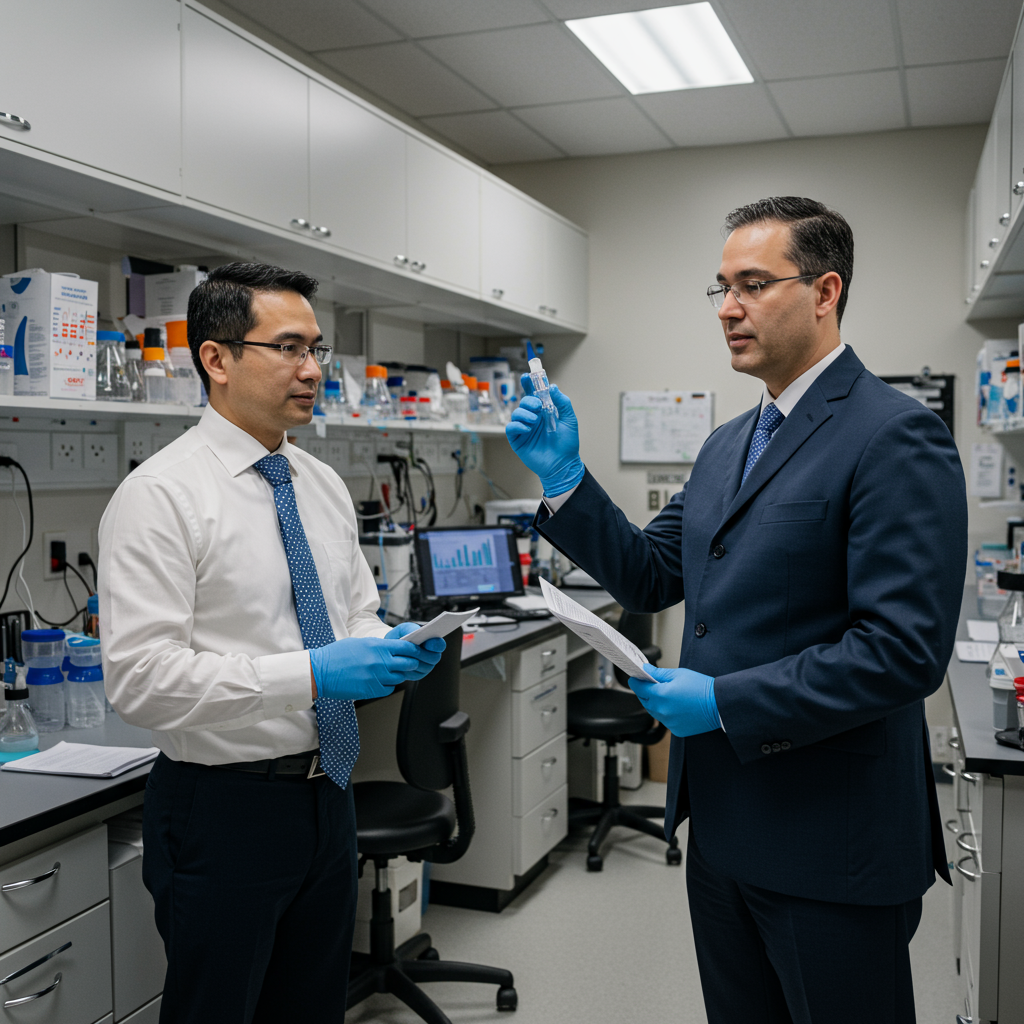A groundbreaking study has unveiled a surprising and potentially revolutionary benefit of mRNA COVID-19 vaccines for certain cancer patients. Researchers from the University of Florida (UF) and the University of Texas MD Anderson Cancer Center found that these vaccines, beyond protecting against viral infection, appear to significantly prolong the lives of individuals battling advanced lung and skin cancers when combined with existing immunotherapy treatments. This unexpected discovery suggests a novel pathway for mobilizing the human immune system against cancer, potentially reshaping future oncologic care.
A New Frontier in Cancer Immunotherapy
The initial alarm for the COVID-19 pandemic quickly led to the development of highly effective mRNA vaccines. Now, these same vaccines are sparking a powerful new hope in the fight against cancer. According to the retrospective study, published in Nature, patients with advanced lung or skin cancer who received an mRNA COVID-19 vaccine within 100 days of starting immunotherapy drugs experienced a dramatically longer median survival. This finding suggests a unique interaction where the vaccine “revs up” the immune system, making it more responsive to cancer treatments.
Unpacking the Observational Study’s Core Findings
Researchers conducted an in-depth observational analysis of medical records from over 1,000 patients treated at MD Anderson between 2019 and 2023. The focus was on patients with Stage 3 and 4 non-small cell lung cancer and metastatic melanoma, all of whom were receiving immune checkpoint inhibitors – a type of immunotherapy designed to unleash the body’s natural defenses against cancer.
The central finding was stark and compelling:
Lung Cancer: Among 884 advanced lung cancer patients, those 180 who received an mRNA COVID-19 vaccine within 100 days of starting immunotherapy saw their median survival nearly double. Their survival jumped from 20.6 months to an impressive 37.3 months, compared to 704 unvaccinated patients.
Metastatic Melanoma: For 210 metastatic melanoma patients, the 43 who were vaccinated within the same timeframe experienced a significant increase in median survival. This rose from 26.7 months to a range of 30 to 40 months. Researchers noted that some patients in this vaccinated group were still alive, hinting at an even greater potential impact.
Crucially, the most profound survival benefit was observed in patients whose tumors were considered “immunologically cold.” These tumors typically have very low PD-L1 expression and respond poorly to immunotherapy. For these patients, the COVID-19 vaccine led to a nearly five-fold improvement in three-year overall survival, suggesting the vaccine can effectively prime otherwise resistant tumors for treatment. This effect was specific to mRNA technology; non-mRNA vaccines like flu shots showed no similar longevity changes.
The Science Behind the Boost: How mRNA Activates Anti-Cancer Defenses
While the exact mechanisms are still being fully explored, researchers propose that mRNA vaccines act as a powerful “alarm” or “siren,” alerting the body’s immune system to recognize and attack cancer cells. Dr. Adam Grippin, a lead researcher now at MD Anderson and formerly at UF, explained that commercially available mRNA COVID vaccines appear to “train patients’ immune systems to eliminate cancer.”
One proposed mechanism involves the vaccine mobilizing immune cells. It acts like a “flare,” relocating immune cells from areas where they are less effective, such as within the tumor itself, to beneficial areas like the lymph nodes. This activation then prompts cancer cells to increase their expression of the immune checkpoint protein PD-L1. Many existing immune checkpoint inhibitors work by blocking PD-L1, essentially removing the “cloak” that tumors use to hide from immune cells. By increasing PD-L1 expression, the mRNA vaccine creates an optimal environment for these inhibitors to unleash a potent, targeted immune response against the tumor.
This hypothesis builds upon prior work by Dr. Grippin and Dr. Elias Sayour, a UF Health pediatric oncologist. They observed that even mRNA vaccines not specifically designed to target tumors could spur anti-cancer immune activity. This led them to question if the widespread mRNA COVID-19 vaccines might possess similar broad immune-activating properties. Preclinical studies conducted by the Lin and Sayour labs corroborated these clinical findings, demonstrating immune activation in healthy volunteers and increased PD-L1 expression on tumors in vaccinated patients.
Revolutionary Implications for Universal Cancer Therapies
The implications of this research are considered “extraordinary” by Dr. Elias Sayour, who co-senior authored the study. He suggests this discovery could “revolutionize the entire field of oncologic care.” The potential goes beyond simply enhancing current treatments; it opens the door to designing new “nonspecific” vaccines. These could mobilize and “reset” the immune response, potentially leading to an “off-the-shelf” universal cancer vaccine applicable across various cancer types.
Dr. Jeff Coller, a leading mRNA scientist at Johns Hopkins University, emphasized the demonstrated power of mRNA medicines. He noted their “unique and unexpected ways” of saving lives beyond infectious diseases. The concept of using widely available, low-cost mRNA vaccines to dramatically enhance immune therapies, extending benefits even to patients with previously treatment-resistant diseases, offers immense hope.
This breakthrough signifies a pivotal moment in mRNA-based therapeutic research. It bridges the gap between infectious disease prevention and advanced cancer treatment, showcasing the versatile potential of mRNA technology. Researchers envision a future where mRNA vaccines, perhaps custom-designed to target specific cancer antigens, could prime the immune system to generate antibodies that directly attack cancer cells, potentially expanding the reach of immunotherapy.
Next Steps: From Observational Findings to Clinical Trials
While these findings are exceptionally promising, researchers stress that the study is observational. This means it identifies a strong correlation but does not definitively prove a causal link. Therefore, confirmation through a rigorous, prospective, randomized clinical trial is essential.
Fortunately, such a trial is already in design and is anticipated to launch soon through the UF-led OneFlorida+ Clinical Research Network. If validated, this breakthrough could offer cancer patients an invaluable gift: more time. Dr. Sayour highlighted that even incremental improvements in survival can mean a great deal to these patients.
Patients should always consult with their oncologists regarding treatment options and vaccination decisions. The ongoing research is a testament to scientific innovation and the relentless pursuit of new solutions in the fight against cancer.
Frequently Asked Questions
How do mRNA COVID vaccines help fight cancer, according to the study?
The study suggests mRNA COVID-19 vaccines might unexpectedly help fight cancer by broadly activating the immune system, not just against COVID-19. Researchers hypothesize the vaccine acts as an “alarm” or “siren,” mobilizing immune cells and increasing the expression of the PD-L1 protein on cancer cells. This makes tumors more responsive to existing immune checkpoint inhibitor therapies, which work by blocking PD-L1 and allowing the immune system to recognize and attack cancer more effectively. This “nonspecific” immune boost appears to sensitize even hard-to-treat “cold” tumors.
Which specific cancer types and treatments were part of this study?
The observational study focused on patients with advanced non-small cell lung cancer (Stage 3 and 4) and metastatic melanoma (a type of skin cancer). All patients included in the analysis were undergoing treatment with immune checkpoint inhibitor drugs, a type of immunotherapy. The beneficial effect of the mRNA COVID-19 vaccines was specifically observed when administered within 100 days of initiating these immunotherapy treatments. The research was conducted by teams at the University of Florida and the University of Texas MD Anderson Cancer Center.
Should cancer patients immediately get an mRNA COVID vaccine based on these findings?
While the findings are highly promising, indicating a significant improvement in survival for vaccinated patients, this was an observational and retrospective study. It identifies a strong correlation but does not definitively prove a direct causal link. Therefore, cancer patients should not alter their treatment plans or vaccination schedules solely based on this research. It is crucial for all cancer patients to have a detailed discussion with their oncology care team or physician to weigh the potential benefits and risks in the context of their specific health situation and ongoing treatments. A randomized clinical trial is currently being designed to further validate these findings.




